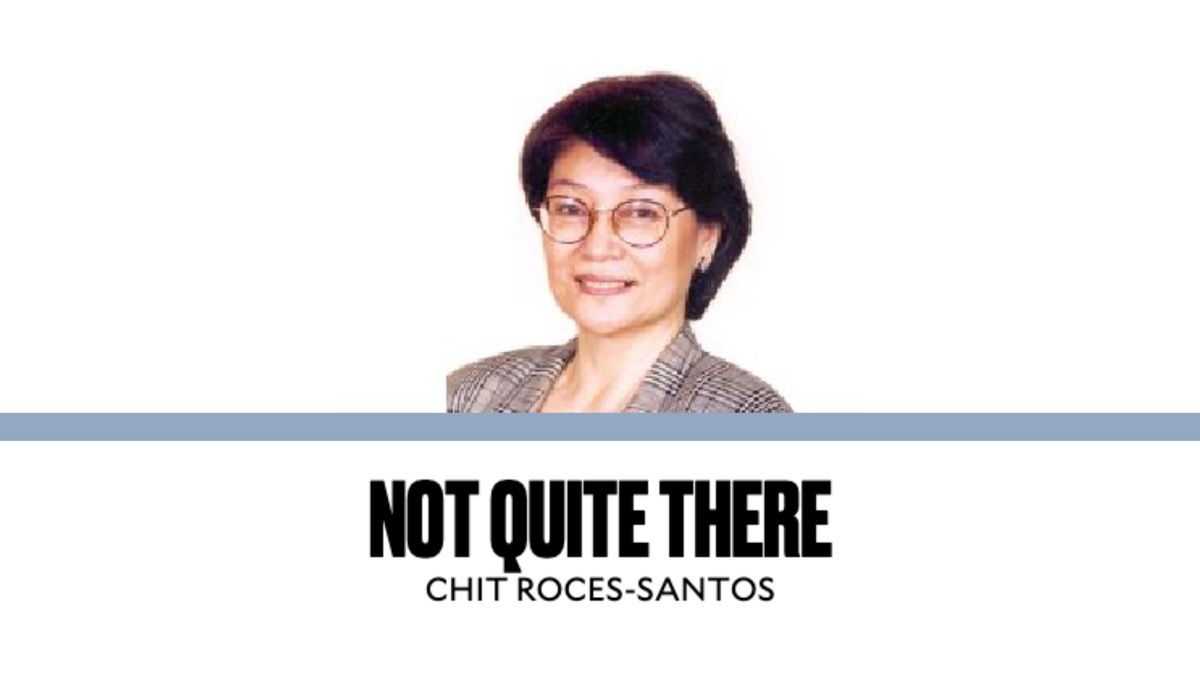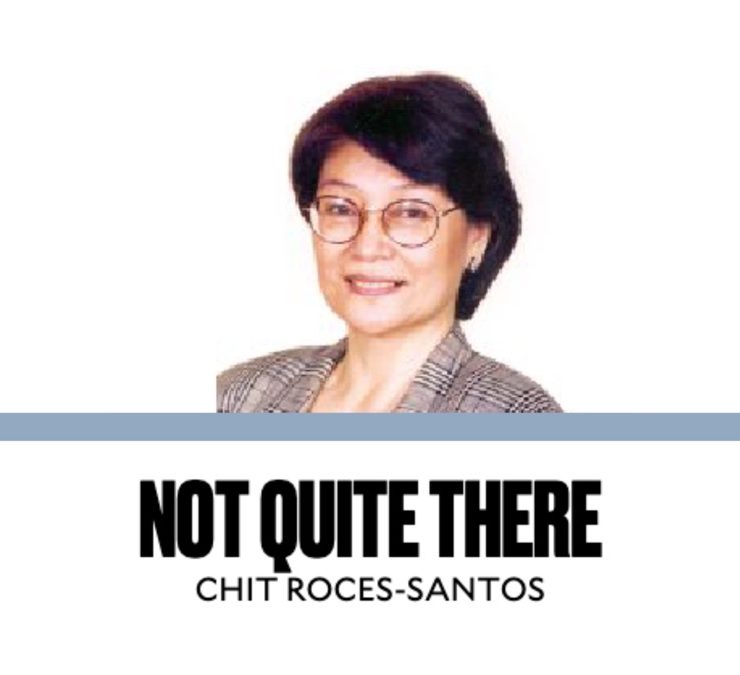All good things must come to an end

I knew it was only a matter of time for the inevitable to happen. Worthier heads had fallen all around me.
It was on Sept. 20 that I got it myself—my 30-day notice terminating my contract with this paper, as columnist and contributing editor for the Lifestyle section. Alas, all good things must come to an end. But not so fast! I still have more columns to write, three after this one, before I pack up my tent and move on.
Before writing this column, I had had very little publishing experience—a late bloomer, as they say. I had contributed to the Sunday Times magazine, a title from the publishing house of the preeminent daily newspaper before martial law, The Manila Times, for which my own father and uncles wrote—it was a Roces paper, a family paper.
Much later, in the dying years of martial law, I began writing a series of sketches of interesting women for a woman’s magazine. The series, as well as my engagement, was ended by the assassination of Benigno “Ninoy” Aquino Jr. My next subject would have been Lupita Aquino Kasiwahara. She had cancelled our appointment for an interview; her brother was coming home on that day, Aug. 21, 1983—coming home, as it happened, to his martyrdom.
It was not until three years later, after the dictator had been kicked out to exile by a million-strong street protest at Edsa, that my interest in writing was rekindled—journalism was, after all, my undergraduate discipline. The rekindling had to do with my joining lives with Vergel—journalism, for his part, was his life.
It was well after my first marriage had ended, and I had restarted myself in academic journalism, that I met Vergel, who would be my editor and instructor for the rest of my writing life.
It wasn’t until after the turn of the millennium that I started publishing again. I was invited to write for a classy monthly. I went out on interviews in the publication’s car, accompanied by a photographer, and was paid dream rates—anyway, dream rates by the standards of one who hadn’t really worked for a living all one’s housewife years. I felt positively legit.
First Draft
This last, and soon-to-end, contract came my way 2011, in the middle of the most exciting writing class I have been admitted to—First Draft. It was a club of nine writing women picked by Gilda Cordero-Fernando. Gilda gathered us every month and had us, including her, come with a draft to read for critiquing. It was Gilda who encouraged me to offer my drafts for publication. We both ended up writing regularly for the same section of the same newspaper—her tenure was ended by her passing.
Now that my own tenure is almost done, I find it endearingly amusing that many of my very senior readers had been under the impression that I had already stopped writing. Some of them would seek me out at socials to ask why I was no longer writing. It was too complicated to explain; I was still writing diligently, week after week, but my column didn’t always appear in the hard copy of the newspaper, but in its online edition, a platform seniors are known to fear to tread.
In any case, whenever my column appears in print, on paper, and gets notice, I get gratifying calls or posts, like “I’m glad you’re writing again,” from one who found me again. It’s certainly good to be missed while you’re still there.
Writing this column has made me even more grateful for having lived so long, the very credential that got me the senior job in the first place—a senior writing about senior subjects. Indeed, writing about my own experiences, sharing them, and getting through all those readers, as their feedback shows—that has been cathartic for me.
Senior viewpoints
Seniors need not feel alone and useless and afraid in these greatly changed, and yet quickly changing, times. We can all laugh and cry together as we remember things past.
Remembering and comparing our time with the present is itself an exciting thing to do, and, again, as I have sensed from the feedback I get, something not entirely for our exclusive benefit. Younger readers of mine express consolation, for feeling their own fears assuaged to learn that aging is not only a blessing but something to look forward to.
The instincts of Letty Jimenez-Magsanoc, the late Inquirer chief editor, and former Lifestyle editor Thelma San Juan have been proven right by the public’s reaction—there indeed seemed a need for senior viewpoints on life.
Gilda, Conchita Razon, Minyong Ordoñez and I as columnists would appear to be not-so-bad bets. Minyong left us first, then Gilda followed, then Conchita retired, leaving me by myself, since shortly before the pandemic. The Sunday paper for which we wrote had become thinner and thinner until our section disappeared, and my column floated around, settling in whatever space became available. Sometimes my column appeared alongside Fr. Tito Caluag’s homily, and most times in digital.
Writing a column every week actually has been energizing, a visit across my long, and yet lengthening, and rich past with more open eyes, sharper long-term memory, and an increasingly enriched perspective. If I hadn’t known that good past I might have viewed the nightmares of the present with unalleviated despair.
My faith, reinforced by the wisdom of ages, assures me that these, too, shall pass, especially if we didn’t simply watch but make ourselves part of the solution, rather than the problem.

















